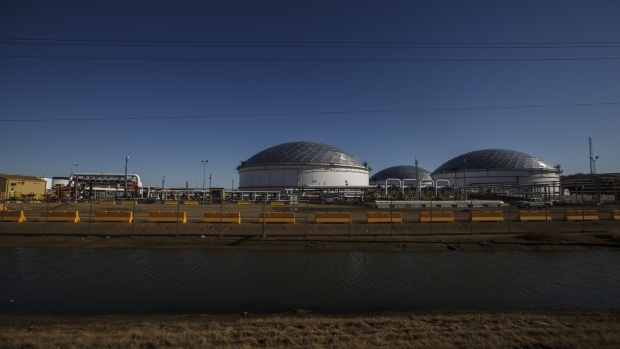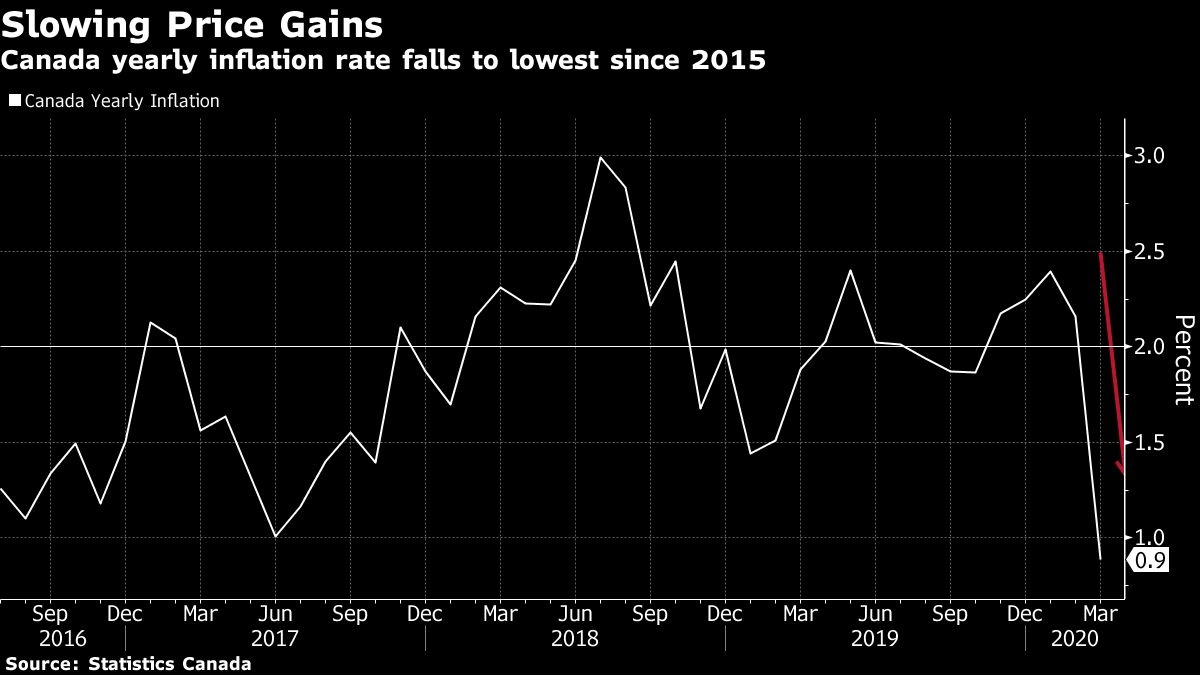Apr 22, 2020
Inflation in Canada slows to lowest since 2015 on oil glut
, Bloomberg News

Canada’s inflation rate fell to its lowest since 2015 in March as energy plunged, showing the Covid-19 outbreak is having downward pressure on prices.
The overall consumer price index was up 0.9 per cent in March from a year earlier, after a 2.2 per cent gain in February, Statistics Canada said Wednesday in Ottawa. That’s the biggest one-month drop in annual inflation since 2006 and a weaker reading than the 1.1 per cent economist were expecting.
Much of the decline in inflation was due to a collapse in gasoline prices. Excluding energy, inflation was 1.7 per cent.
Wednesday’s report shows the extent to which the pandemic has caused a deceleration in prices due to lower demand across a range of goods and services. In particular, prices in the energy and travel and tourism sectors were falling even before travel restrictions were put into full effect mid-March.

Other Details
- Core inflation readings -- often seen as a better measure of underlying prices pressures -- declined to 1.83 per cent , the lowest since January 2018
- On a monthly basis, consumer prices fell 0.6 per cent in March. On a seasonally adjusted monthly basis, the index fell 0.9 per cent, the largest decline in records back to 1992.
- Statistics Canada said the most of the price collection for March CPI was largely unaffected by the pandemic, as a majority of the prices were collected prior to the implementation of local travel limitations
- Every province reported a decline in annual price inflation, led by lower prices at the pump from low global oil prices
- The Bank of Canada said this month it expects inflation to fall to near zero in the second quarter
--With assistance from Erik Hertzberg.